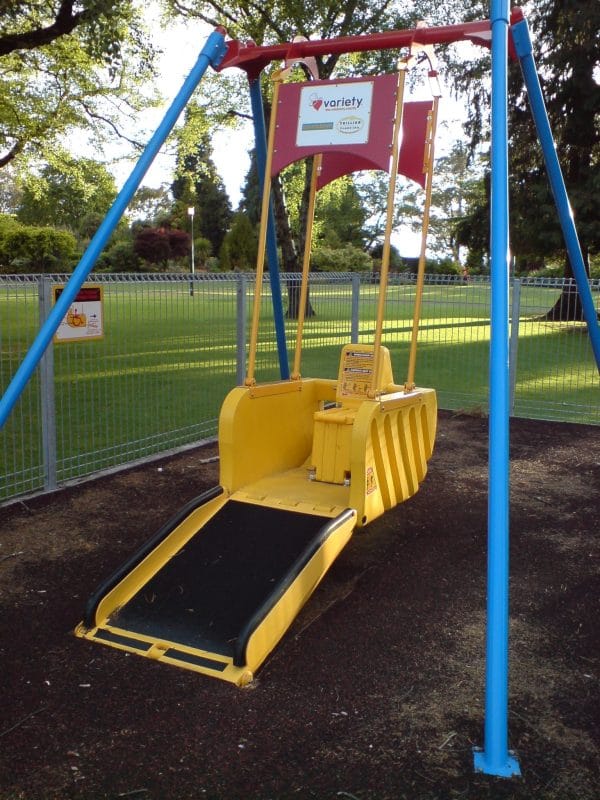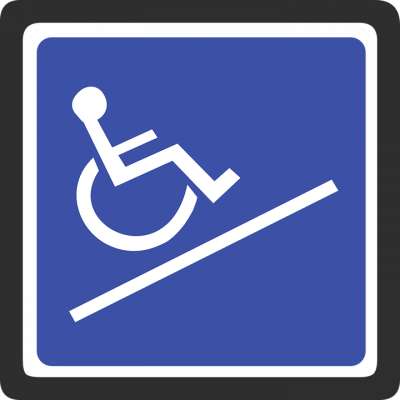Accessibility is the degree to which a product, device, service, or environment is available to as many people as possible. In consideration to wheelchair accessibility, this means the degree to which a wheelchair has access to different environments. The rights of those in wheelchairs was determined by the American Disabilities Act that went into effect on July 26, 1990. Under this act, it is unlawful to discriminate or refuse to accommodate a member with a disability. This means that all public facilities should be wheelchair accessible or made accessible in a timely manner. For those who are confined to a wheelchair, there are several easy accommodations which can be made to make that individual’s life both in the home, workplace, or public area effortless and easy to enjoy.
Table of Contents
Accessibility in the Home:
There are several quick changes that can be made to make a home accessible. The following is a brief list of suggestions:
- Ramps: Build a ramp into the house or build a temporary one for the wheelchair to easily fit up. Most wheelchairs fit within dimensions of thirty-six to forty-eight inches wide. Make sure the ramp is slip resistant and has some type of grip so the person wheeling the chair can get up without any problems. For every twelve inches of ramp there should only be one foot of vertical lift. Additionally, if the ramp is longer than thirty feet it must have some time of turn in it.
- Doorways and Handles: Depending on the width of the doorway, some chairs may or may not be able to fit through. If the chair does not fit, you can offset the door hinges, remove the door frame or door, and place the door in reverse swing order. Door handles should be approximately thirty-six inches off the ground. Most people in wheel chairs prefer levers over knobs.
- Furniture and Hallways: Adjust furniture so that a chair can fit under a table. The general guidelines of tables is twenty-eight inches. Also, try to clear hallways of clutter or rugs that could catch under a wheelchair.
Accessibility at Work:
Under Title I law, employers are not required to make changes to their facilities until an applicant, recently hired employee, or current employee needs accommodation and has requested changes. Once the changes have been requested, employers may work with individuals to meet specific needs for their disability. Employers should pay for the modifications themselves; however, they do not have to pay for your disability. For example, an employer could utilize funds to build a ramp for their recently hired writer who is confined to a wheelchair because they have no use of their legs, however the employer would not have to pay for a new wheelchair if the writer did not feel comfortable in theirs. Additionally, a person in a wheelchair is considered disabled legally to provide terms for how employers should proceed, however, it is not prudent for the employer to discriminate against such disability, especially since most individuals confined to a wheelchair are anything but disabled.
Accessibility in Public Places:
All public places must have some type of modification to their architecture or design. If there is a curb, there should be some type of curb ramp or divot for the wheel chair to access. If there are stairs there should also be some type of ramp for the wheelchair. Stores and parking garages should provide some sort of handicap parking for both vans and cars. These spots must have some type of space to the side of the vehicle so a ramp or other device may be able to assist the individual in the car. Restrooms should also have some sort of accommodation as well, such as handrails or open stalls so wheel chairs can access the restroom. In other words, there must be “reasonable accommodation” made by the owners of the public space, whether that be public, a conglomerate, or a private party. If this accommodation is not made, individuals should request the appropriate changes. If this request is denied, those individuals may have the right to sue those individuals for failure to cooperate with the ADA laws.
Contact Us
If you have been injured and have been confined to a wheelchair due to someone else’s negligence, feel free to contact us at Good Guys Injury Law so we can get you the compensation you deserve. No one should have to suffer large medical bills at the hands of a wreckless individual. Give us a call today for a free confidential consultation. You may reach us at 801-506-0800.
Photo courtesy of Pixabay

